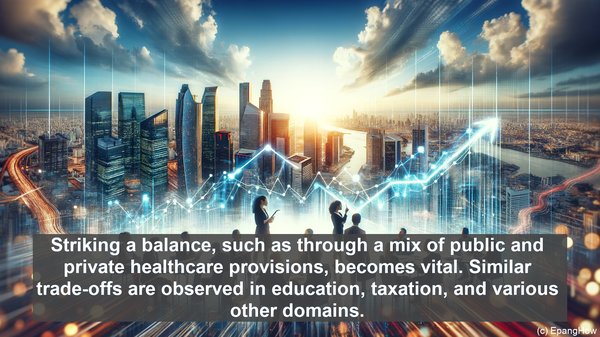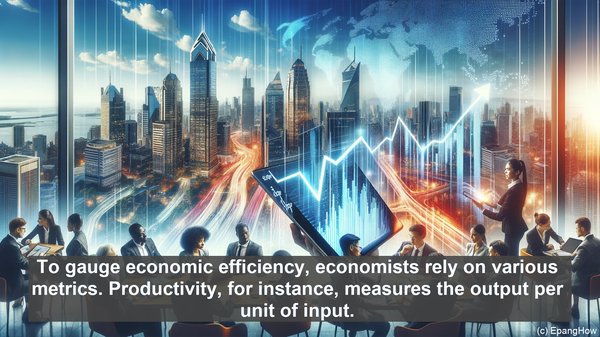Introduction: Setting the Stage
Hello, everyone! Welcome to this insightful discussion on economic efficiency and economic equity. As we navigate the intricate world of economics, it’s crucial to grasp the nuances of these concepts. While both pertain to the optimal functioning of an economy, they diverge in their focus and implications. So, let’s dive in!
Economic Efficiency: Maximizing Output, Minimizing Waste
At its core, economic efficiency revolves around achieving the highest possible output with the given resources. It’s akin to squeezing the most juice out of a fruit. In an economically efficient system, resources are allocated in a manner that minimizes waste and maximizes productivity. This principle is often associated with the ‘invisible hand’ of the market, where supply and demand dynamics guide resource allocation. The goal is to avoid inefficiencies, such as idle resources or underutilization, which can hinder economic growth.
The Metrics of Efficiency: Productivity and Cost
To gauge economic efficiency, economists rely on various metrics. Productivity, for instance, measures the output per unit of input. A highly productive system implies that resources are being utilized optimally, resulting in increased output. Cost efficiency is another crucial aspect. It examines the relationship between the resources used and the value generated. A cost-efficient system minimizes expenses while maintaining or enhancing output quality. These metrics, among others, provide insights into the efficiency of an economic system.

Economic Equity: Striving for Fairness and Balance
While economic efficiency emphasizes output optimization, economic equity shifts the focus to fairness and balance. It’s about ensuring that the benefits and burdens of an economy are distributed justly. In an equitable system, disparities are minimized, and everyone has access to basic necessities and opportunities. This principle acknowledges that not all individuals start from the same point, and thus, some may need additional support to achieve a level playing field. Policies promoting income redistribution and social welfare often align with the goal of economic equity.

The Trade-Off: Efficiency vs. Equity
Here’s where the crux lies: achieving perfect economic efficiency and perfect economic equity simultaneously is a monumental challenge. In fact, there’s often a trade-off between the two. Policies that enhance equity, such as progressive taxation or income redistribution, may introduce inefficiencies. Conversely, measures aimed at maximizing efficiency, like reducing regulations, may exacerbate inequalities. Striking the right balance becomes a key consideration for policymakers, as they need to weigh the pros and cons of each approach.
Real-World Examples: Balancing Act in Action
To comprehend the practical implications, let’s consider some real-world examples. Take healthcare systems. A purely efficient approach might prioritize treatment for those who can afford it, potentially leaving out the economically disadvantaged. On the other hand, a purely equitable approach might result in long waiting times and strain on resources. Striking a balance, such as through a mix of public and private healthcare provisions, becomes vital. Similar trade-offs are observed in education, taxation, and various other domains.
